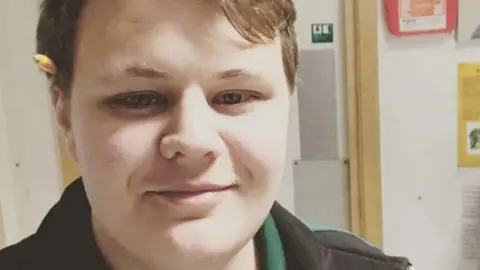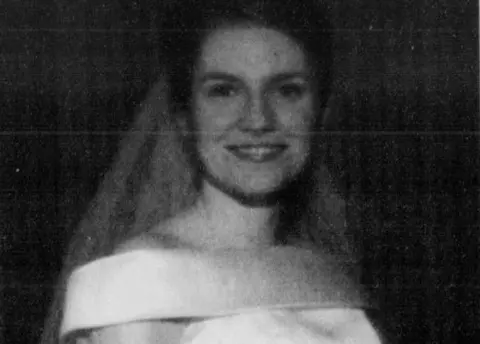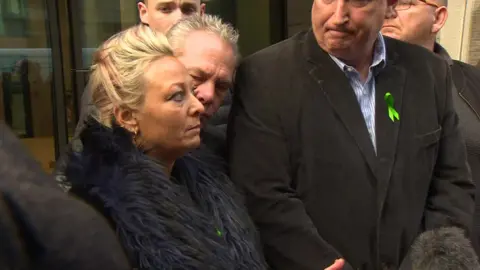Harry Dunn: UK makes extradition request to US
 Justice4Harry19
Justice4Harry19The Home Office has requested the extradition of a US woman to be charged with causing the death by dangerous driving of motorcyclist Harry Dunn.
Mr Dunn, 19, died after a crash in Northamptonshire in August which led to the suspect, Anne Sacoolas, leaving for the US under diplomatic immunity.
Extradition proceedings were started in December.
The Home Office said the matter was "now a decision for the US authorities".
The US State Department said an extradition request would be "highly inappropriate" and insisted that Ms Sacoolas' status at the time of the crash meant she had diplomatic immunity.
A spokeswoman said they expressed their deepest sympathies and offered condolences to the Dunn family for their loss, and would continue to "look at options for moving forward".
"It is the position of the United States government that a request to extradite an individual under these circumstances would be an abuse," she said.
"The use of an extradition treaty to attempt to return the spouse of a former diplomat by force would establish an extraordinarily troubling precedent."
 Aiken Standard Archive
Aiken Standard ArchiveMr Dunn died after his motorbike was in collision with a car owned by Mrs Sacoolas.
The crash happened outside RAF Croughton where Mrs Sacoolas' husband Jonathan worked as an intelligence officer.
The 42-year-old left the UK and returned to her native US, claiming diplomatic immunity.
A Home Office spokesman said: "Following the Crown Prosecution Service's charging decision, the Home Office has sent an extradition request to the United States for Anne Sacoolas on charges of causing death by dangerous driving. This is now a decision for the US authorities."
When the Crown Prosecution Service (CPS) announced extradition proceedings, US officials said it was not "a helpful development" and Mrs Sacoolas' lawyer said she would not return to the UK.
Lawyer Amy Jefress said: "Anne will not return voluntarily to the UK to face a potential jail sentence for what was a terrible but unintentional accident."

Can Anne Sacoolas be extradited?
The extradition request is sent via the British Embassy to the US State Department.
A lawyer will then decide whether it falls under the dual-criminality treaty, where the alleged offence is a crime in both countries and carries a prison sentence of at least a year.
The maximum sentence for causing death by dangerous driving is 14 years' imprisonment, although this is usually reserved for the most serious cases.
The US may reject the request for extradition, arguing that Mrs Sacoolas is still entitled to diplomatic immunity.

Reacting to the extradition request on behalf of Harry Dunn's family, spokesman Radd Seiger said: "Anne Sacoolas will come back. She has to come back. There is no other way forward.
"So, whether they put up a fight and whether they actually refuse it, we will only know in time and the parents are determined to just take this a step at a time. It's being handled by the officials now, by the lawyers, and we're not going to get ahead of ourselves."
"No-one, whether diplomat or otherwise, is above the law," he added.
He said in the circumstances, considering all the family had been through, the family was pleased with the extradition request and felt it was a "huge step towards achieving justice for Harry".

In December, Mr Dunn's mother Charlotte Charles said the family was "relieved" Mrs Sacoolas had "finally" been charged.
"We made that promise to him the night we lost him to seek justice thinking it was going to be really easy," she said.
"We had no idea it was going to be so hard and it would take so long."
The family's constituency MP, cabinet minister Andrea Leadsom, has since written to Prime Minister Boris Johnson asking him to meet Mr Dunn's parents to hear their concerns.
